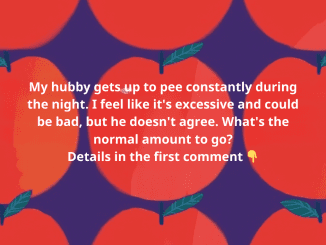Sugar can be a sweet escape, but too much of it can wreak havoc on your body in ways you may not even realize. From unexpected mood swings to stubborn weight gain, your body often sends clear signals that it’s time to cut back on the sweet stuff. Let’s explore the ten telltale signs that you might be overdoing it on sugar and what steps you can take to regain balance.
1. Constant Cravings for Sweet Foods

Ever find yourself reaching for cookies right after finishing a meal or hunting for late-night desserts? This could be your body signaling a sugar dependency. Consuming sugar regularly creates a cycle of cravings that keeps you coming back for more. It’s like a rollercoaster—one sweet fix leads to another, and before you know it, you’re trapped in a loop.
Breaking this habit means gradually replacing sugary snacks with healthier options like fresh fruits or nuts. It won’t be easy, but over time, your cravings will lessen, and your body will thank you.
2. Energy Highs Followed by Crushing Slumps
Feeling unstoppable one moment and drained the next? Sugar could be the culprit. Foods high in sugar cause a rapid spike in blood sugar levels, giving you a quick energy boost. But as soon as that sugar burns off, your energy crashes, leaving you sluggish and irritable.
To maintain stable energy levels, focus on eating balanced meals with protein, fiber, and healthy fats. These nutrients help slow the absorption of sugar and keep you feeling energized throughout the day.
3. Unexpected Weight Gain
If the numbers on the scale are creeping up, sugar might be playing a role. Not only is sugar packed with empty calories, but it also promotes fat storage—especially around your midsection. Foods and drinks loaded with sugar can cause your insulin levels to spike, which signals your body to store more fat.
Start by cutting back on sugary beverages like sodas and flavored coffees. Replace them with water, herbal teas, or black coffee to reduce calorie intake and curb weight gain.
4. Skin Issues and Frequent Breakouts
Your skin is a reflection of what you eat, and too much sugar can wreak havoc on your complexion. Sugar increases the production of insulin, which can lead to inflammation in your body. This inflammation can trigger acne, redness, or even worsen skin conditions like eczema.
If your skin has been acting up, try cutting back on processed sugars and increasing your intake of foods rich in antioxidants, like berries and leafy greens.
5. Persistent Dental Problems

This one’s no surprise—sugar is a major contributor to tooth decay. Bacteria in your mouth feed on sugar, producing acid that can erode your tooth enamel and lead to cavities. If you’re constantly battling dental issues despite good oral hygiene, it might be time to evaluate your sugar intake.
Make a habit of rinsing your mouth with water after eating sugary foods and brush your teeth regularly. Also, limit sugary snacks and opt for alternatives like crunchy vegetables, which can naturally clean your teeth.
6. Mood Swings You Can’t Explain
Ever feel grumpy or emotional for no reason? Sugar might be to blame. High sugar consumption can cause dramatic spikes and drops in blood sugar levels, which directly impact your mood. You might feel euphoric after indulging in sweets, only to crash into irritability or sadness later.
To stabilize your mood, focus on eating whole foods and limit processed snacks. Consuming complex carbohydrates, like oats or quinoa, can provide steady energy and keep your emotions in check.
7. Frequent Colds or Infections
If you feel like you’re always catching a cold, your sugar habit could be weakening your immune system. Studies suggest that high sugar intake can suppress the body’s natural defense mechanisms, making it harder for you to fight off infections.
To give your immune system a boost, reduce your sugar consumption and add more vitamin-rich foods, like citrus fruits, to your diet.
8. Trouble Falling or Staying Asleep

A late-night dessert might seem harmless, but consuming sugar close to bedtime can disrupt your sleep. Sugar spikes your energy levels and interferes with the production of melatonin, the hormone responsible for regulating sleep.
If you’re tossing and turning at night, cut back on sugary snacks in the evening and opt for calming teas or a handful of almonds to promote restful sleep.
9. Unquenchable Thirst
Feeling constantly thirsty, even after drinking water? High sugar levels in your blood can cause dehydration, as your body works overtime to balance its glucose levels. Excessive thirst could be a sign that you’re consuming too much sugar, and it might even indicate a more serious issue, like prediabetes.
If you notice this symptom, reduce your sugar intake immediately and consult a healthcare professional if the problem persists.
10. Struggling with Brain Fog

Do you find it hard to concentrate or remember simple things? Sugar might be clouding your mental clarity. Consuming too much sugar can lead to inflammation in the brain, which can impair cognitive function. This “brain fog” can leave you feeling scattered and unfocused.
Improve your mental clarity by cutting back on sugary foods and including brain-boosting nutrients, like omega-3 fatty acids from fish or walnuts, in your diet.
What to Do If You Recognize These Signs
If several of these signs hit close to home, it’s time to take control of your sugar intake. Start small by identifying the biggest sources of sugar in your diet—think sodas, desserts, and processed snacks—and gradually cut back. Here’s how you can make the transition easier:
- Read Labels: Hidden sugars are everywhere, even in savory foods like sauces and bread. Learn to spot terms like “fructose,” “sucrose,” and “corn syrup” on ingredient lists.
- Swap Sugary Drinks: Replace sodas and energy drinks with water, herbal teas, or sparkling water flavored with a splash of lemon or cucumber.
- Choose Whole Foods: Opt for natural, unprocessed foods like fruits, vegetables, lean proteins, and whole grains.
- Satisfy Sweet Cravings Naturally: Craving dessert? Reach for a piece of dark chocolate or a handful of dates instead of sugary candy.
- Plan Balanced Meals: Incorporate fiber, protein, and healthy fats into every meal to keep your blood sugar levels stable and your cravings at bay.
Conclusion
Your body has a clever way of communicating when something is off, and these ten signs are its subtle cries for help. Whether it’s the stubborn weight gain, constant cravings, or unshakable fatigue, excess sugar could be at the root of many of your daily struggles.
The good news? You have the power to change. By cutting back on sugar and embracing a more balanced diet, you’ll not only feel better but also reduce your risk of long-term health issues. Start small, stay consistent, and enjoy the sweet taste of a healthier life.


